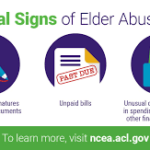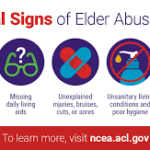Introduction:

Financial crimes against the elderly represent a pervasive and deeply concerning issue within the United States, characterized by various forms of exploitation, fraud, and manipulation targeted at vulnerable older adults. This demographic, often possessing significant assets and savings accumulated over a lifetime, becomes a prime target for perpetrators seeking illicit gains through deceptive schemes and predatory tactics. Such crimes not only result in substantial financial losses but also inflict profound emotional distress, eroding the trust and security essential for the well-being of older individuals.
In this comprehensive examination, we explore the intricate landscape of financial crimes against the elderly in the USA, dissecting the types of offenses perpetrated, their detrimental impacts on victims, existing legislative frameworks aimed at prevention and protection, strategies for prevention and intervention, and avenues for reporting and recourse. By delving into the intricacies of this pervasive issue, we aim to shed light on the gravity of financial exploitation targeting older adults and underscore the urgency of collective action to safeguard the financial security and dignity of our elderly population.
Financial crimes against the elderly in the USA are unfortunately prevalent and can take various forms. Here’s a detailed overview:
Types of Financial Crimes:

Fraud: This includes scams where the elderly are deceived into giving away money or personal information. Common examples include lottery scams, romance scams, IRS impersonation scams, and tech support scams.
Identity Theft: Criminals steal personal information such as Social Security numbers, bank account details, or credit card numbers to make unauthorized transactions or open fraudulent accounts.
Financial Exploitation: This involves the unauthorized use of an elderly person’s funds or assets, often by a caregiver, family member, or someone in a position of trust.
Investment Scams: Elderly individuals may be targeted with fraudulent investment opportunities promising high returns or guaranteed profits.
Telemarketing and Phone Scams: Scammers use phone calls to manipulate or trick elderly individuals into sending money or disclosing sensitive information.
Impact and Implications:

Financial Impact:
Financial crimes against the elderly can have devastating financial consequences, resulting in significant losses of savings, retirement funds, and assets accumulated over a lifetime. These losses may jeopardize the ability of older adults to meet their basic needs, afford necessary healthcare, or maintain their quality of life in retirement. The financial impact extends beyond individual victims to families and communities, with ripple effects on intergenerational wealth transfer and economic stability.
Emotional and Psychological Impact:

The emotional toll of financial exploitation on elderly victims cannot be overstated. Beyond the financial losses, victims often experience feelings of betrayal, shame, and helplessness, eroding their sense of trust and security. Such emotional distress can lead to increased social isolation, depression, and anxiety, further compromising the overall well-being and mental health of older adults.
Erosion of Trust:
Financial crimes against the elderly can erode trust in institutions, caregivers, and even family members. Victims may become distrustful of financial advisors, banks, or government agencies, hindering their willingness to seek help or report abuse. This erosion of trust extends beyond individual relationships to broader societal implications, undermining confidence in the fairness and integrity of financial systems and institutions.
Implications for Healthcare and Social Services:
The impact of financial crimes against the elderly extends to healthcare and social services systems. Victims may require additional support and resources to address the physical and psychological consequences of financial exploitation, placing strains on healthcare providers, social workers, and community organizations. Additionally, addressing the needs of elderly victims of financial abuse requires specialized training and resources within these sectors to ensure effective identification, intervention, and support.
Policy and Legal Implications:
Addressing financial crimes against the elderly necessitates robust policy frameworks and legal mechanisms to prevent exploitation, prosecute perpetrators, and protect victims. The implications extend to legislative efforts to strengthen elder abuse laws, enhance penalties for financial crimes, and improve enforcement mechanisms. Additionally, there are implications for regulatory agencies and financial institutions to implement safeguards and protocols to detect and prevent financial exploitation of older adults.
Social and Cultural Implications:

Financial crimes against the elderly raise broader social and cultural questions about attitudes towards aging, vulnerability, and intergenerational relationships. Addressing these crimes requires a shift in societal attitudes to prioritize the rights, dignity, and autonomy of older adults. It also underscores the importance of fostering intergenerational solidarity and support networks to combat social isolation and prevent elder abuse.
Financial crimes against the elderly can have devastating effects on victims, causing significant financial losses and emotional distress.
Victims may suffer from financial instability, loss of savings, and compromised retirement funds, affecting their quality of life and ability to meet basic needs.
Additionally, victims may experience feelings of shame, embarrassment, or distrust, which can impact their mental and emotional well-being.
Legislation and Protection:
Several federal and state laws aim to protect elderly individuals from financial exploitation and abuse. These laws may include penalties for perpetrators and provisions for victim support and restitution.
The Elder Justice Act, enacted as part of the Affordable Care Act, addresses elder abuse, neglect, and exploitation, including financial exploitation.
Adult Protective Services (APS) agencies in each state are responsible for investigating reports of elder abuse, including financial exploitation, and providing assistance and protection to victims.
Prevention:

Education and awareness campaigns are crucial for preventing financial crimes against the elderly. Providing information about common scams and how to recognize and avoid them can empower seniors to protect themselves.
Family members, caregivers, and community organizations play a vital role in safeguarding the elderly from financial exploitation by monitoring their financial transactions and intervening if signs of abuse are detected.
Encouraging seniors to be cautious with their personal information, especially when interacting with unfamiliar individuals or businesses, can help prevent identity theft and fraud.
Reporting:
Encouraging victims to report financial crimes is essential for holding perpetrators accountable and preventing further harm. Victims or concerned individuals can report suspected financial exploitation to local law enforcement, Adult Protective Services, or the National Center for Elder Abuse.
Overall, addressing financial crimes against the elderly requires a multifaceted approach involving legislation, enforcement, education, and community support to protect vulnerable seniors and ensure their financial security and well-being.
Financial crimes
against the elderly in the USA represent a multifaceted and pervasive threat that undermines the financial security, dignity, and well-being of older adults. Through various deceptive schemes, including fraud, identity theft, financial exploitation, and investment scams, perpetrators prey upon the vulnerabilities of the elderly, causing substantial financial losses and profound emotional distress.
Despite the existence of legislative measures and protective mechanisms aimed at preventing and addressing such crimes, the complexity and evolving nature of financial exploitation pose significant challenges. Education, awareness, and community support are vital components of combating this issue, empowering older adults with the knowledge and resources to recognize and resist fraudulent schemes. Additionally, caregivers, financial institutions, and law enforcement agencies play crucial roles in detecting and reporting instances of financial abuse, thereby facilitating timely intervention and support for victims.
Moving forward, concerted efforts are needed to strengthen legislative frameworks, enhance enforcement mechanisms, and expand support services for victims of financial crimes against the elderly. By fostering a culture of vigilance, empathy, and accountability, we can strive to create a society where older adults can age with dignity, security, and respect for their financial autonomy.
Conclusion
Ultimately, combating financial exploitation of the elderly requires a collaborative and holistic approach that engages individuals, communities, government agencies, and private sector stakeholders in a unified effort to protect the most vulnerable members of our society. Only through collective action can we effectively safeguard the financial well-being and fundamental rights of our elderly population, ensuring that they can thrive and flourish in their later years free from the scourge of financial exploitation.



